GALERIE UTOPIA RESPONSOLIDARITY ATHENS
The exhibition RESPONSOLIDARITY will be permanently installed in GALERIE UTOPIA`s FORGOTTEN BAR. RESPONSOLIDARITY initiated by Tjorg Douglas Beer
ATHENS... -- GREECE ---- THE EPPICENTRE FOR CREDIT CRUNCH.. GRINDING INTO THE BRAIN OF THE PIG HEADS
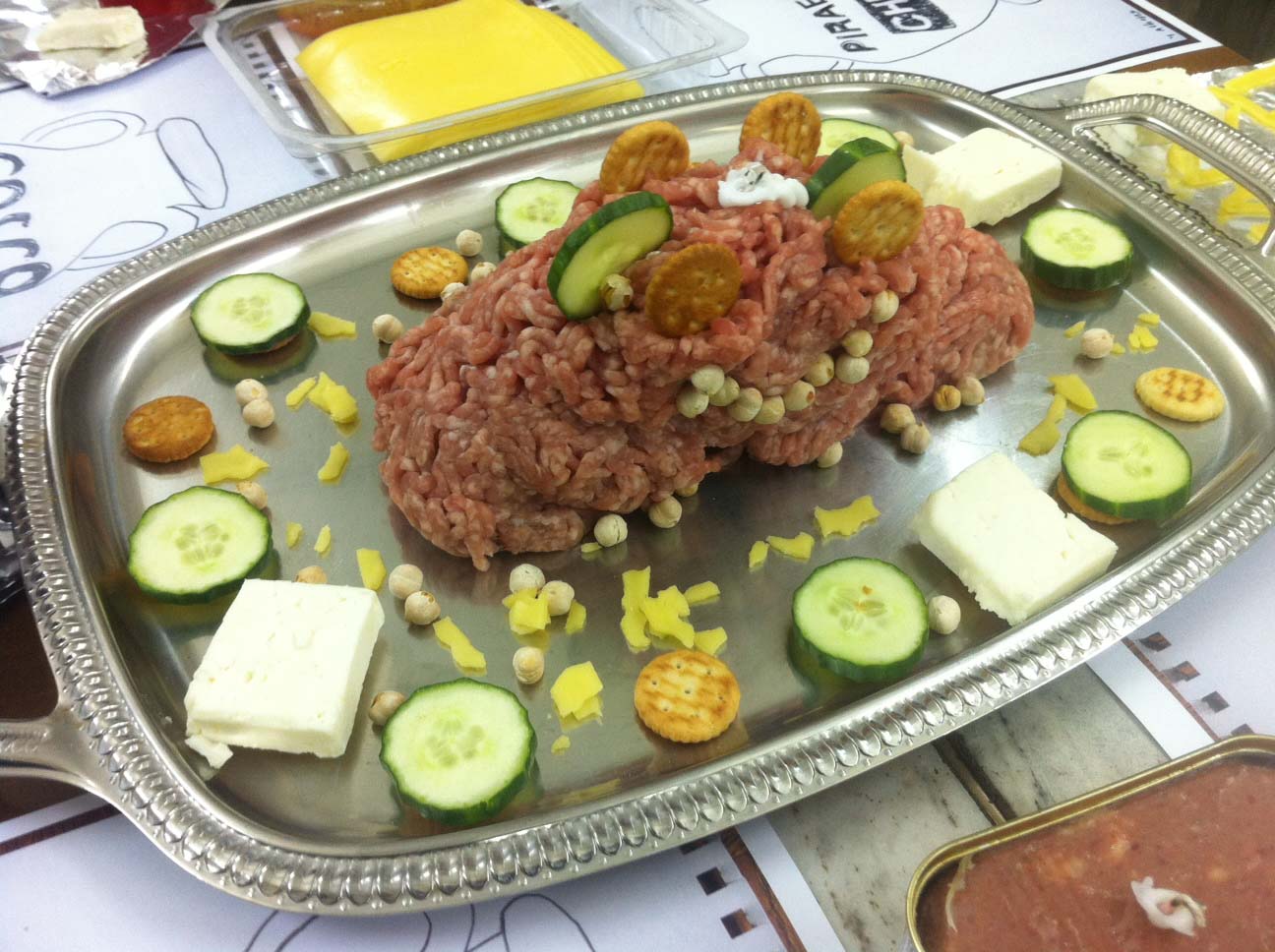
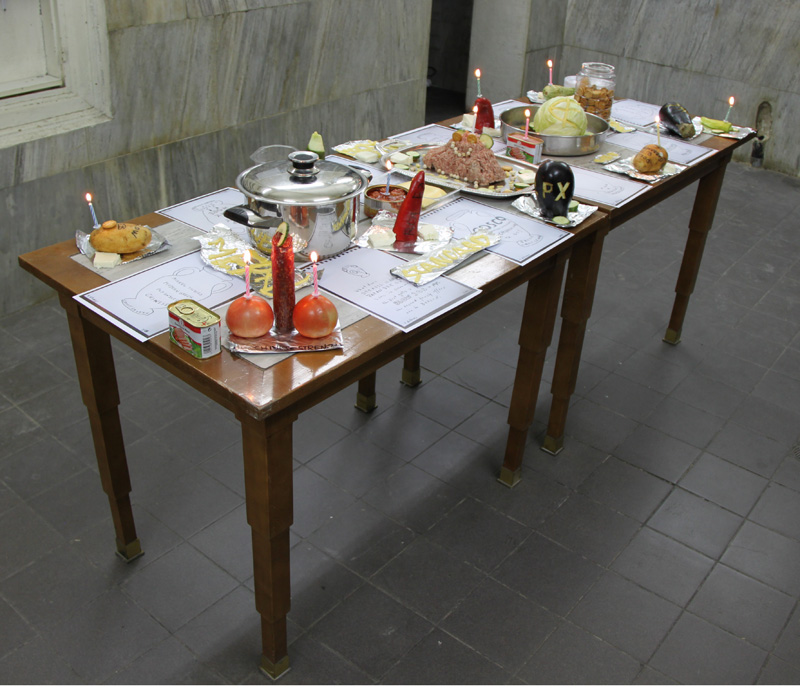
mroe images below
Rainer Ganahl and Angela Merkel
invite you to
A Special
GREEK CREDIT CRUNCH MEAL
Free Food for All
In the beginning was FOOD and GREED.
Since 2008, I have created special Credit Crunch Meals, inspired by the obscene combination of unregulated financial markets, high finance and politics. The so-called CREDIT CRUNCH CRISIS is a perpetual crisis we seem unable to escape. The CREDIT CRUNCH epoque started in 2007 with an early climax in the bankruptcy of Lehman Brothers, one of the biggest US banks in 2008 that nearly collapsed the world financial system. The effects of this crisis haven't gone away.
Today, Greece, (next to Portugal, Ireland, Spain and even Italy) runs the risk of a national debt default, i.e. of bankruptcy. Leading economists predict Greece immanent insolvency which could make them a European Lehman Brother that could even trigger the break up of the EURO. Hence the talk is now about a EURO CRISIS that can of course, trigger a new series of big international bank failures since many of the Big French and German Banks are holdling Greek loans. Rating agencies (Standard & Poor’s, Moody’s, etc.) that failed to detect the 2007/2008 financial melt down are now in the business of big downgrades thus creating new headaches and making lending if not impossible so very expensive.
You are invited to join the party, with free food and a funny obscene gloom that hopefully makes you release some of the stress that is in the air hanging over Athens, Europe and for that matter over the entire worlds economic system.
Rainer Ganahl
New York, September 27, 2011
www.ganahl.info
(due to budgetary restrictions the artist will only be present in the form of a big pig or fish head)
----------
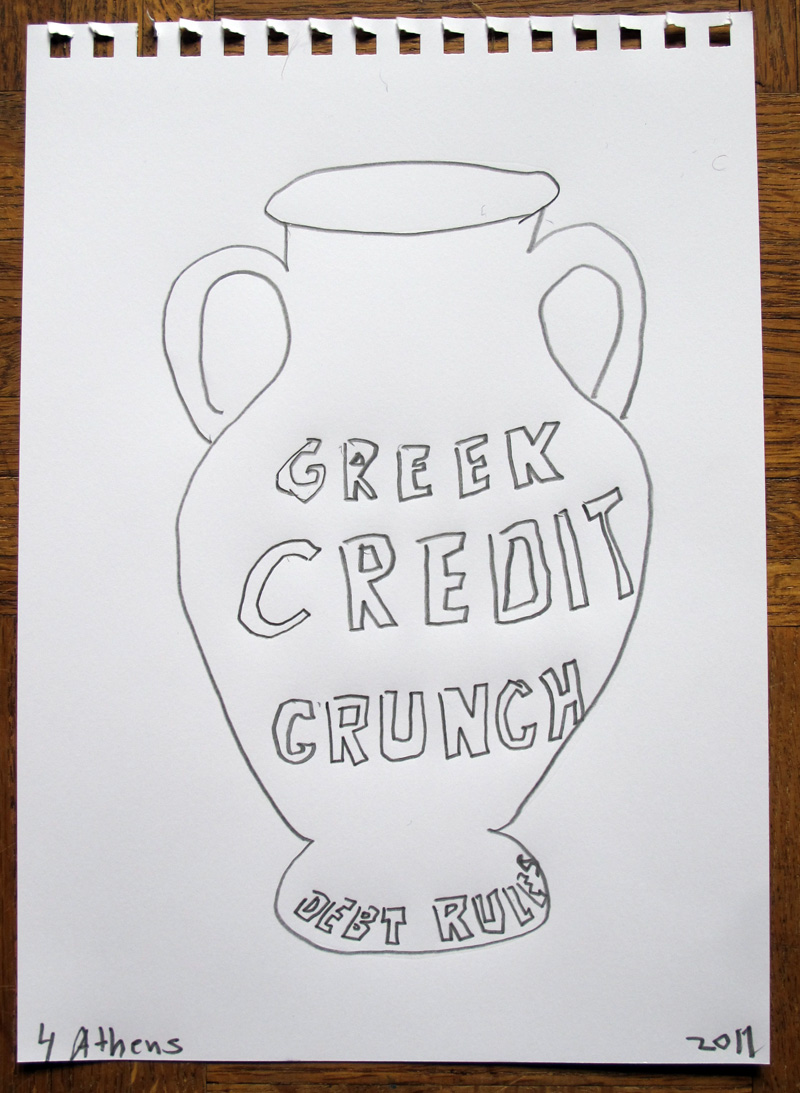
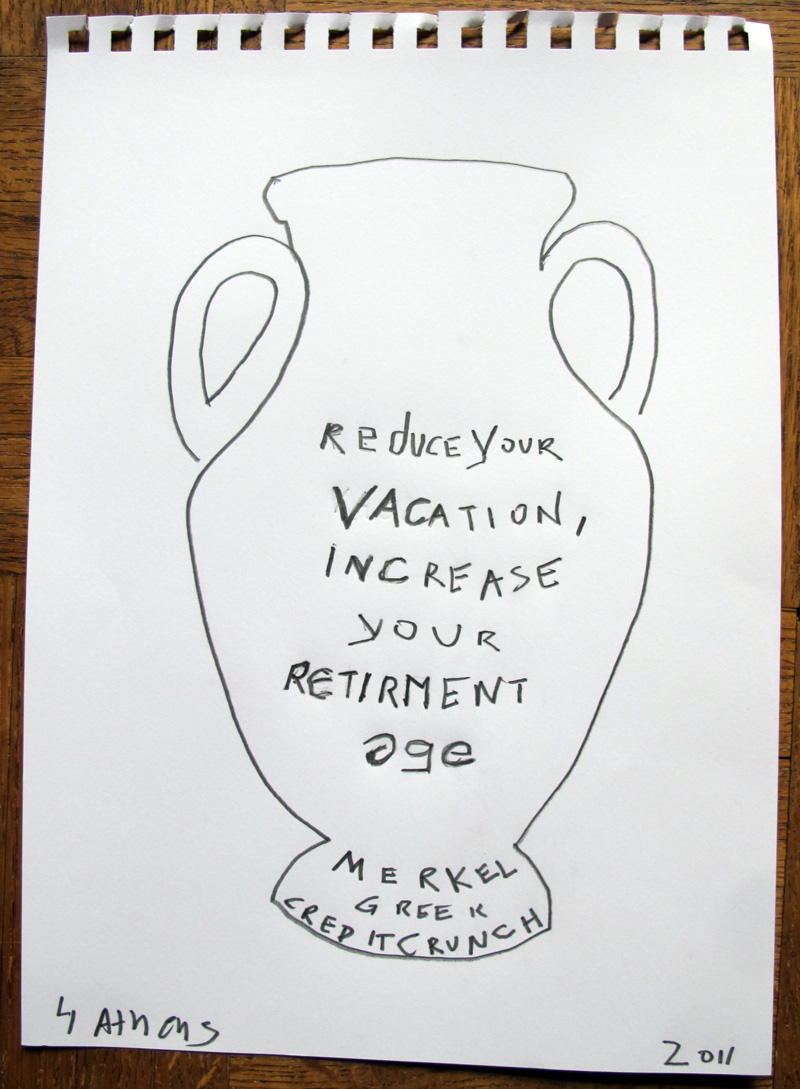
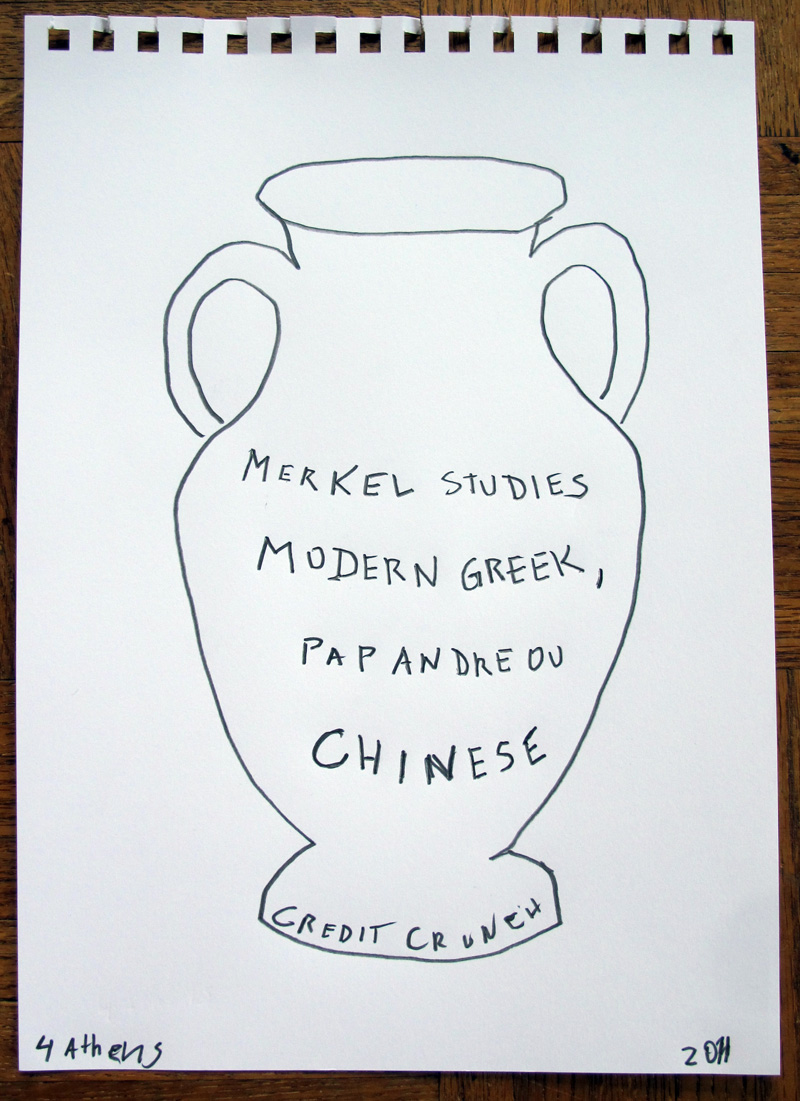
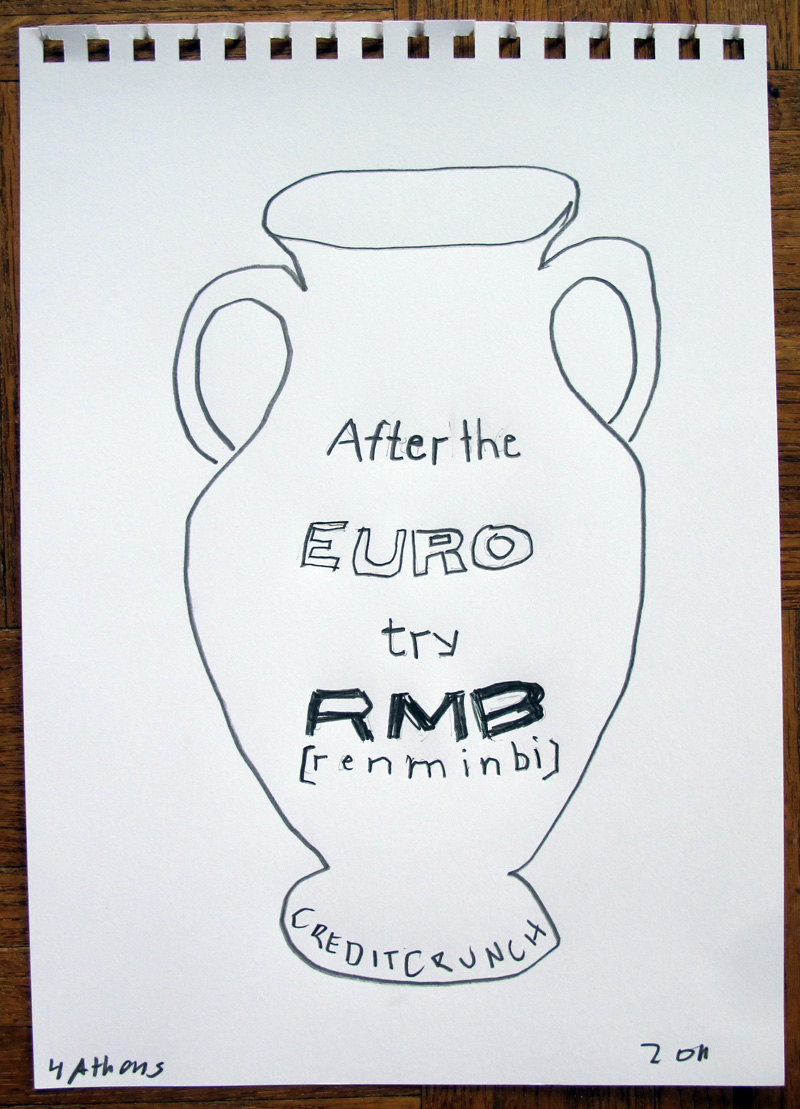
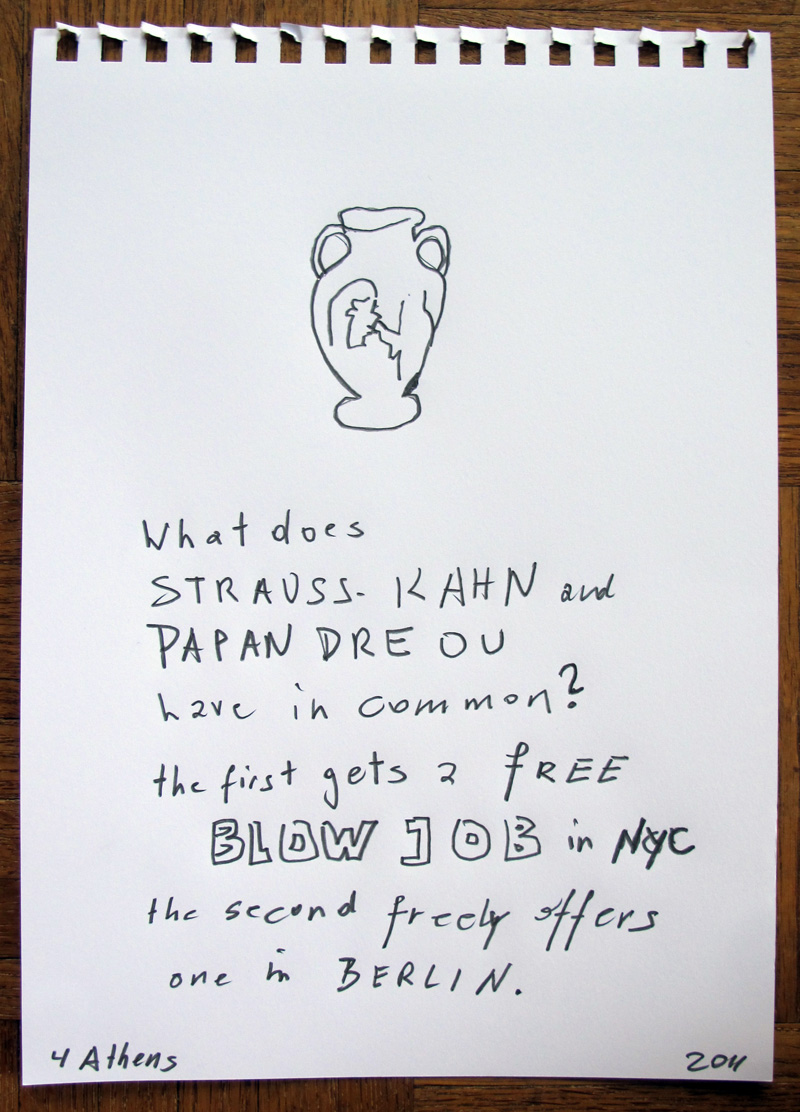
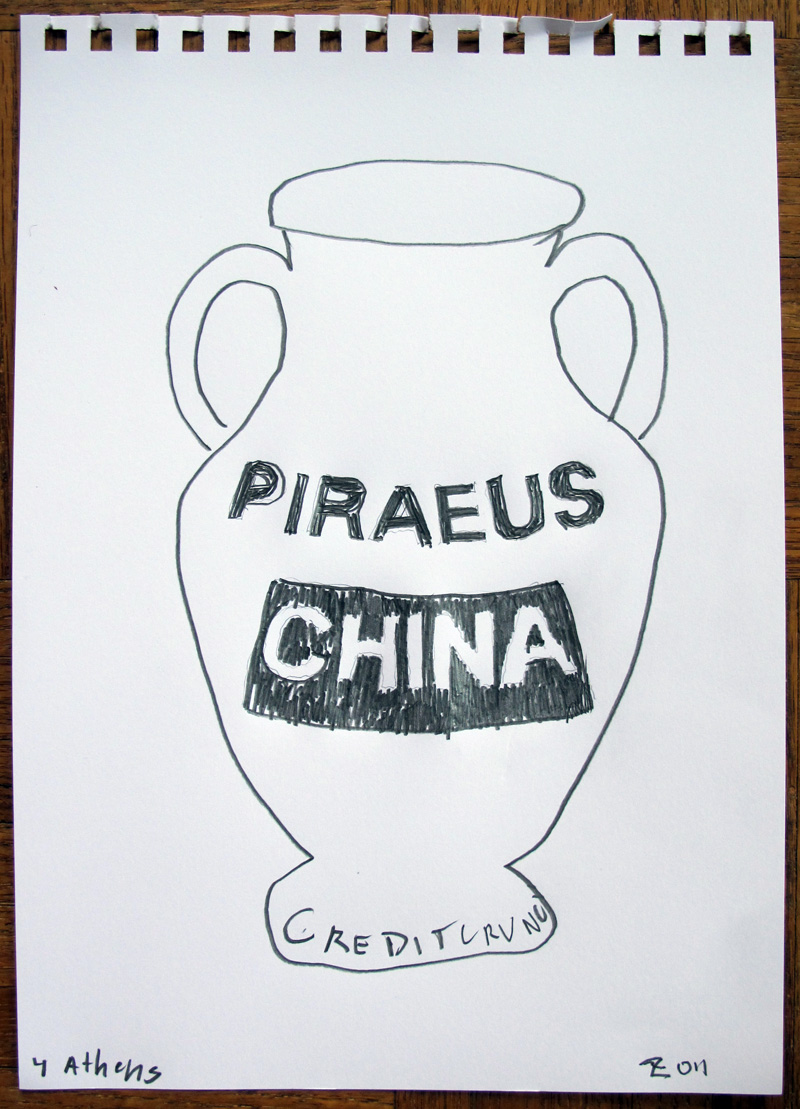
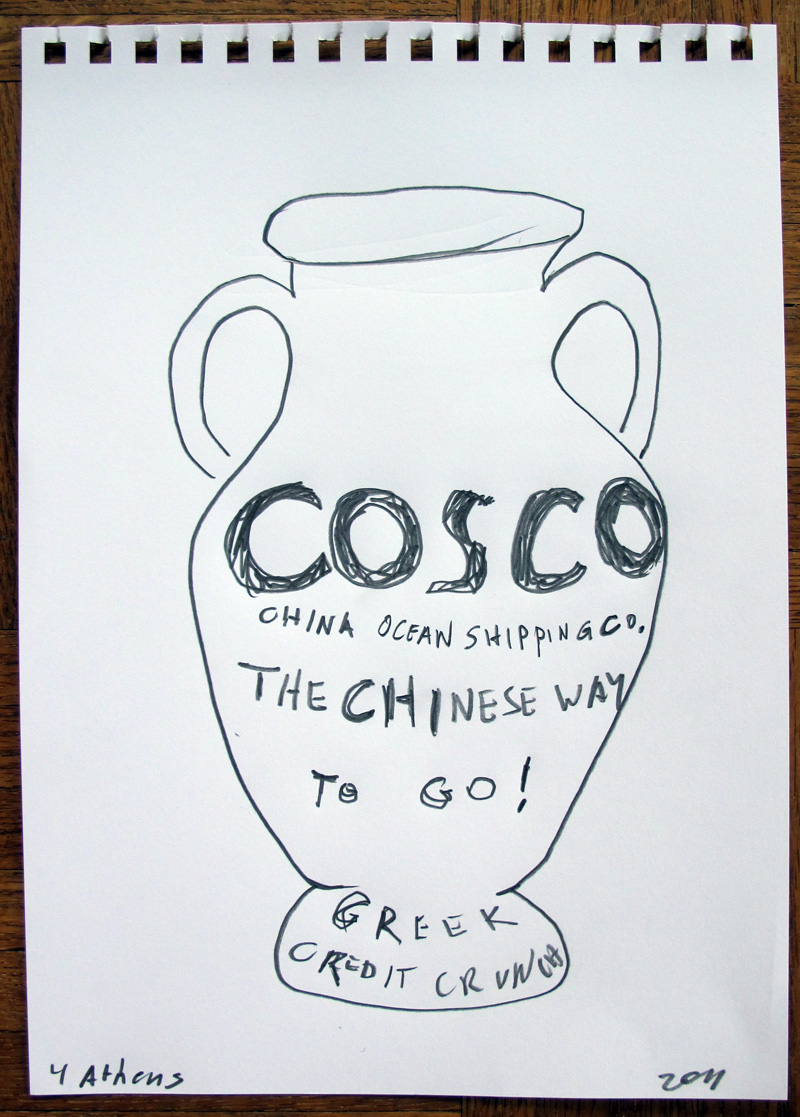
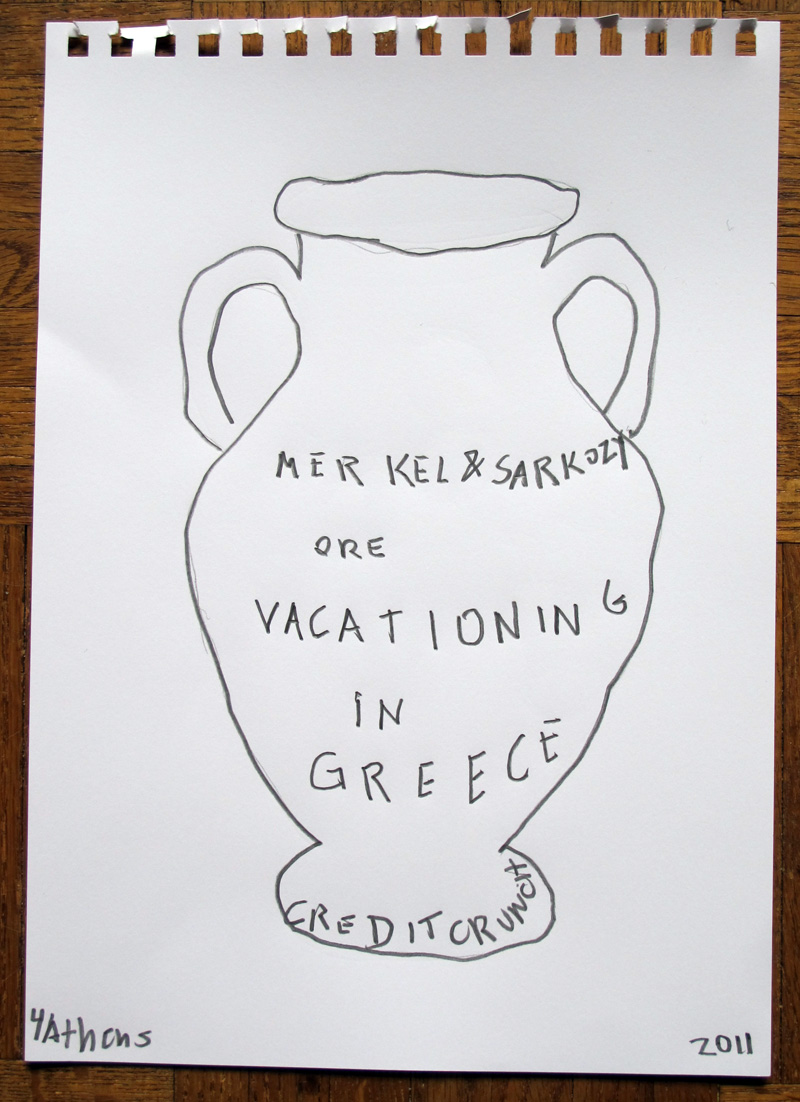
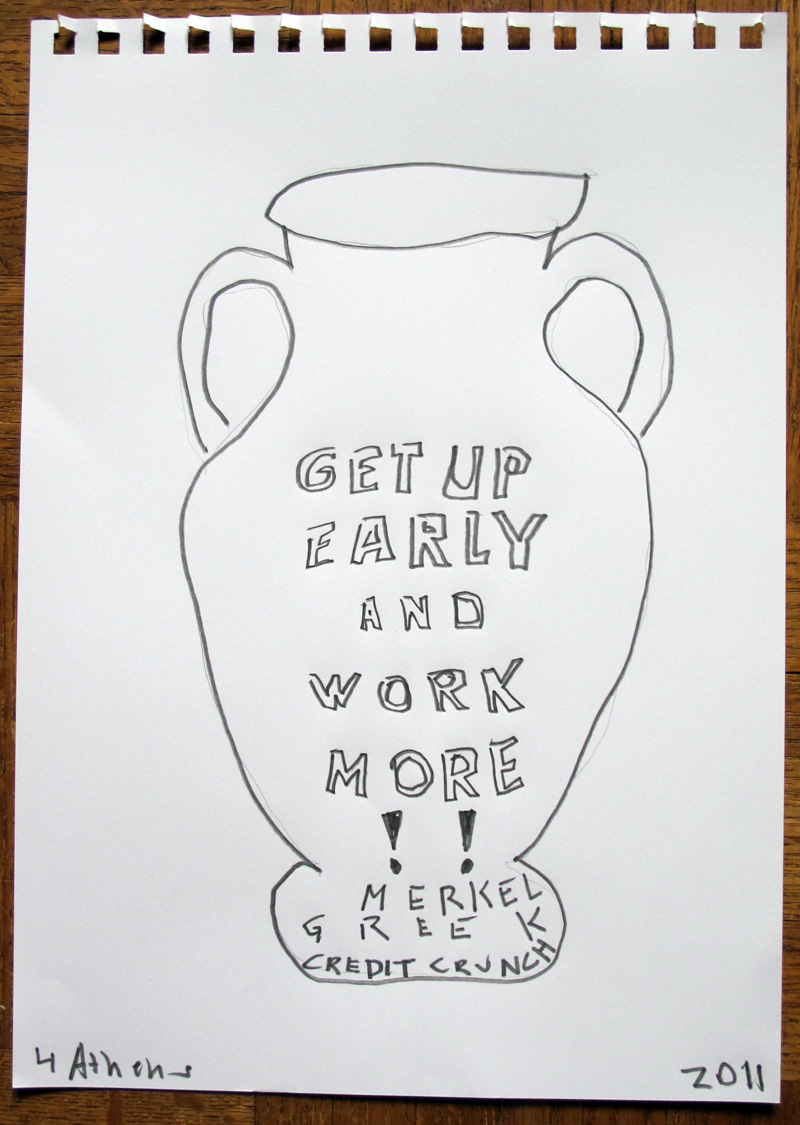
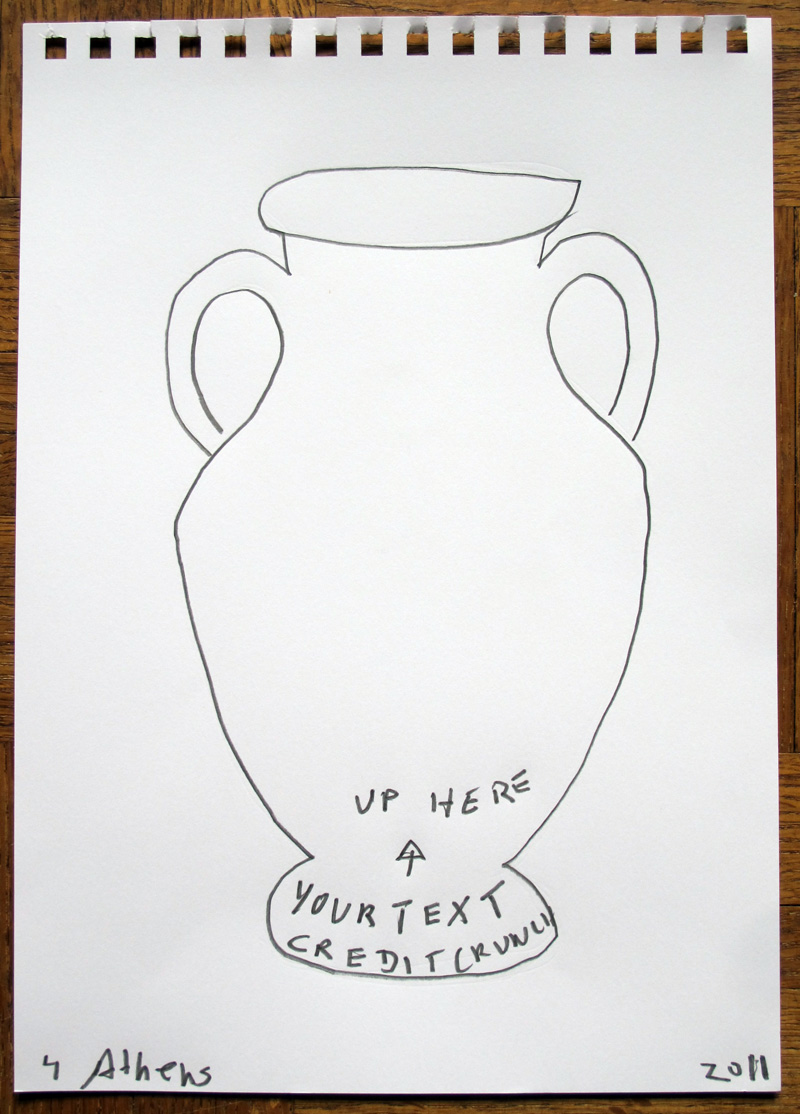
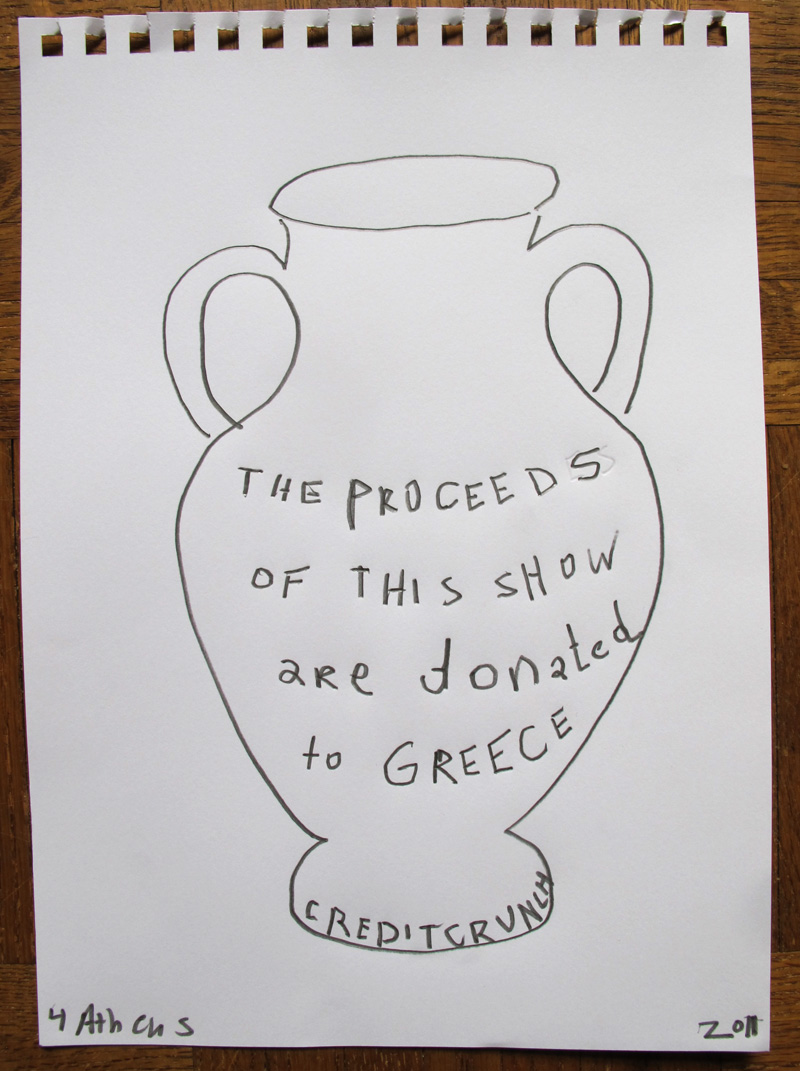
YOU CAN PAINT THE DRAWINGS.. /COPY THEM AS GIVEN.. DIRECTLY WITH A BLACK MARKER ON THE ALLUMINUM LIKE GIVEN BELOW
------
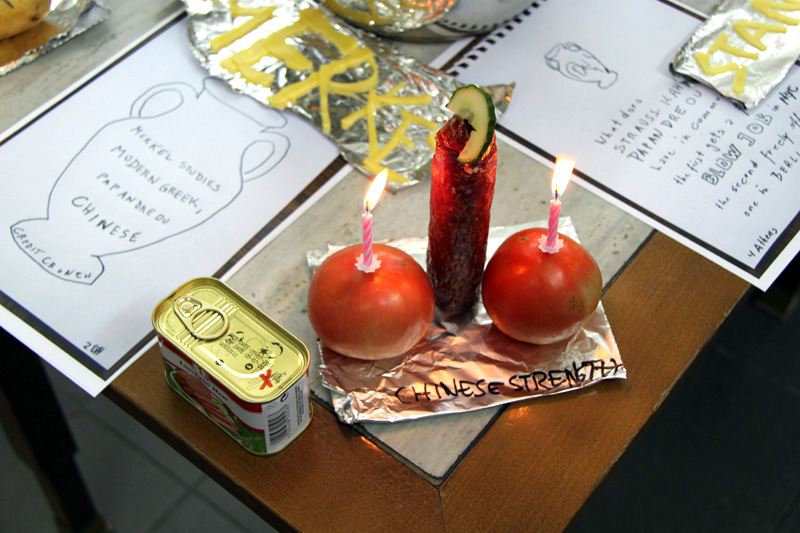
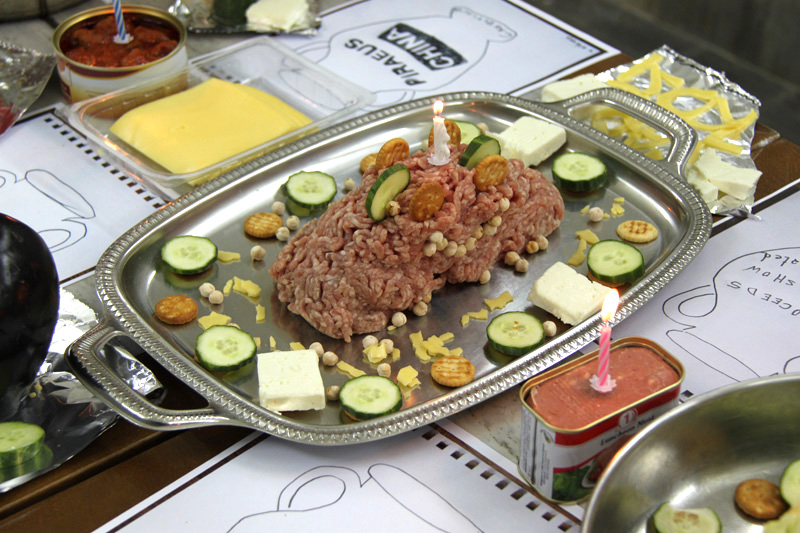
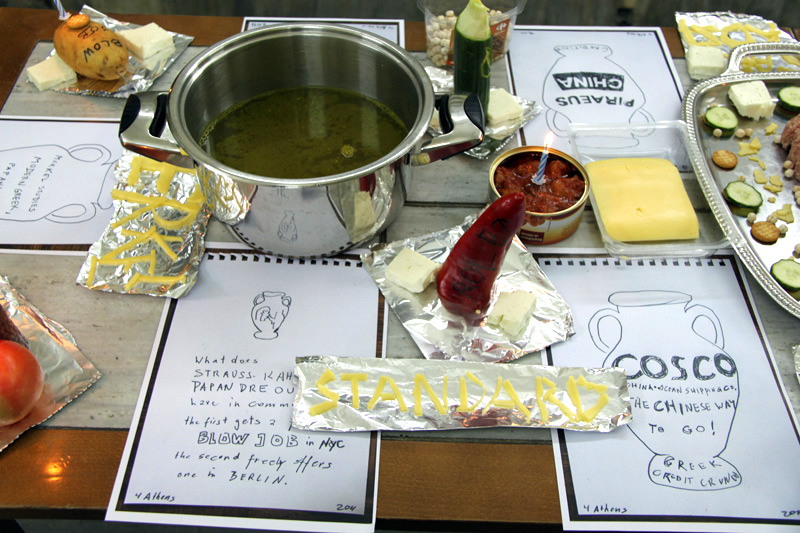
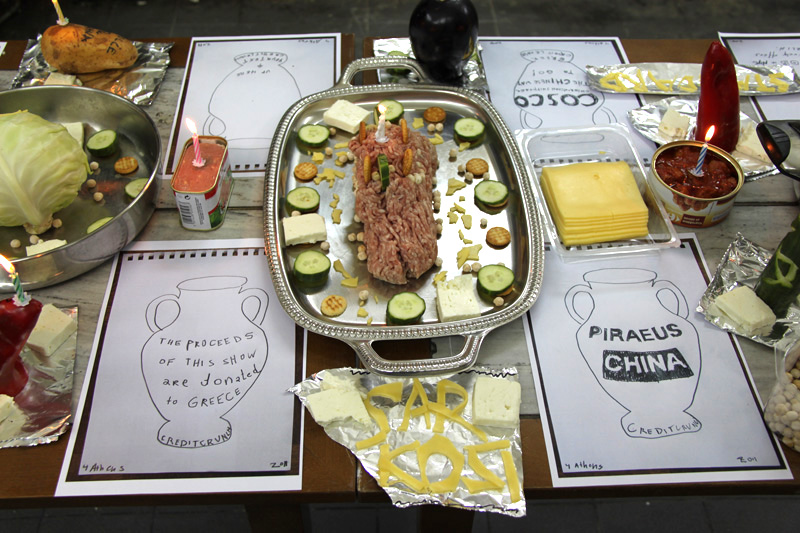
 my favorit as a vegetarian is the CANNED SPAM here on the edge of the table
my favorit as a vegetarian is the CANNED SPAM here on the edge of the table
the meet below... feels very accurate: ... forced through a grinder... DISGUSTING... TO THE POINT OF .... -- unable to express here on line... the the TROPHY CRACKERS ON TOP OF IT WIHT THE WHITE SPERM... MAN.. AS IF SOMEBODY JUST
VOMTIED.. .. (my beloved food: haselnuts... also pressed into it... .... ahaaaha..chhccch. ch.. )

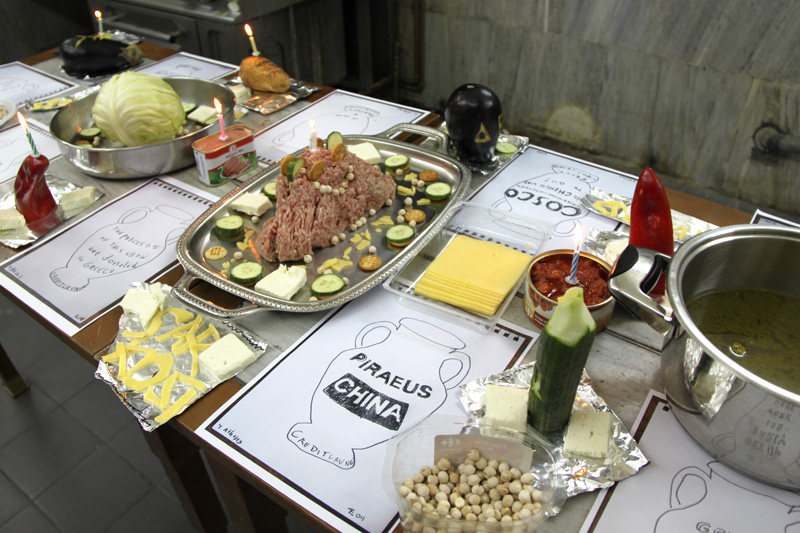
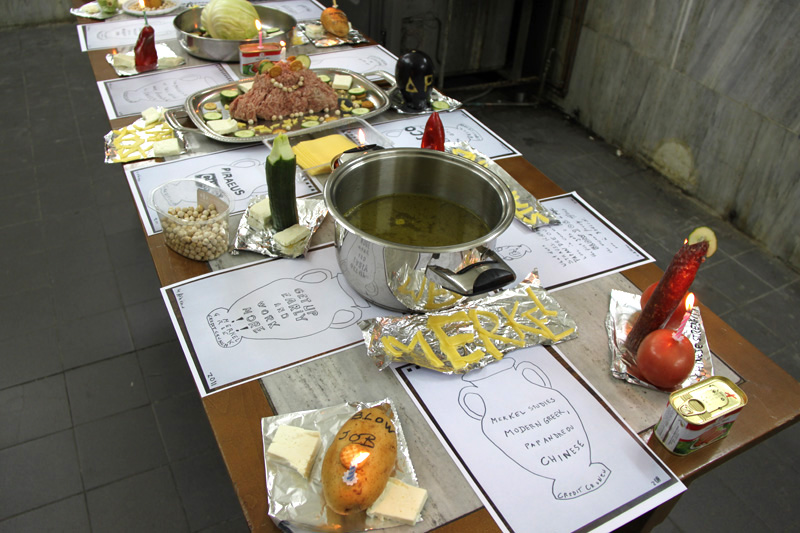
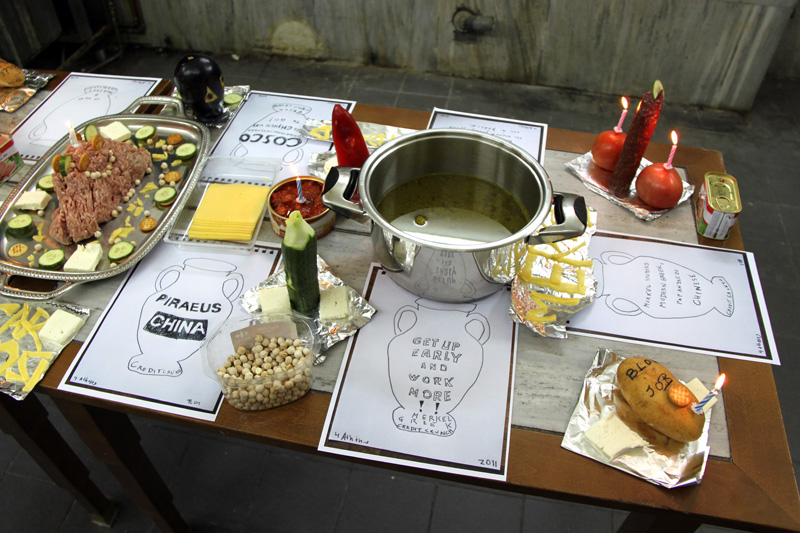
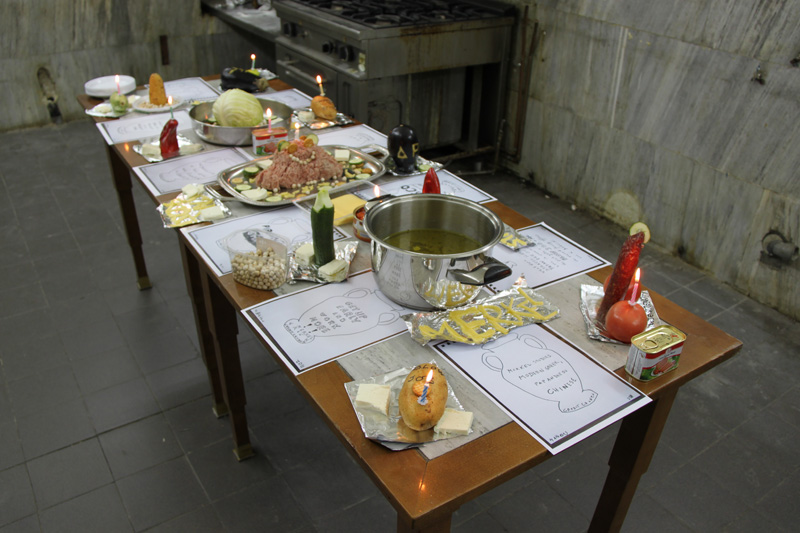
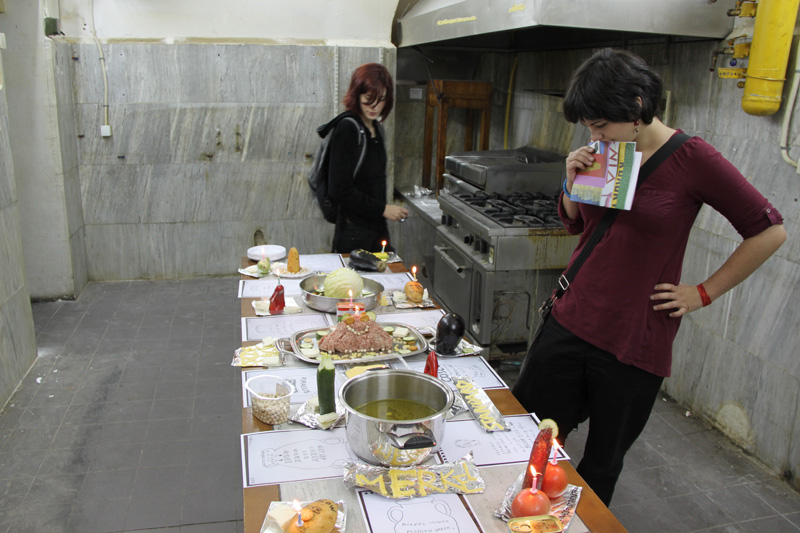
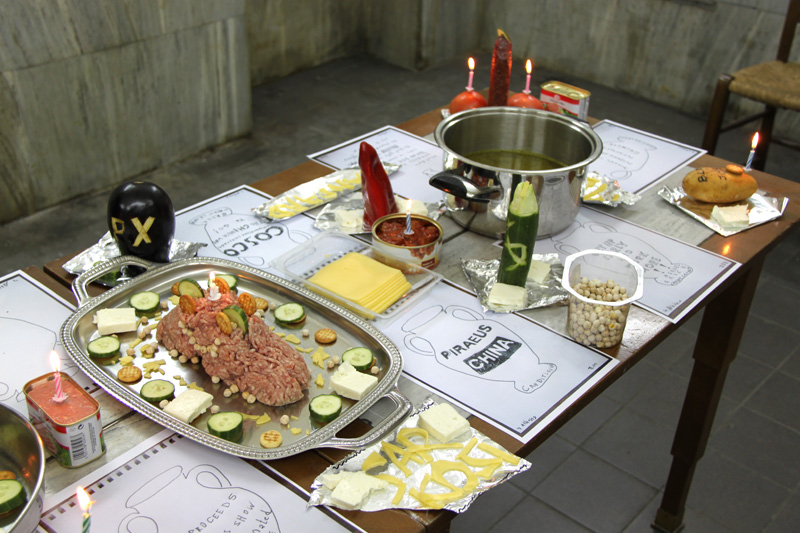
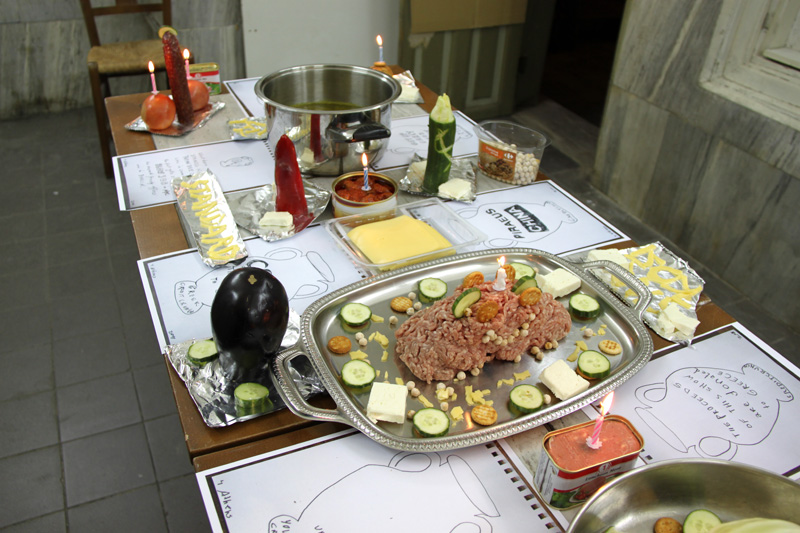
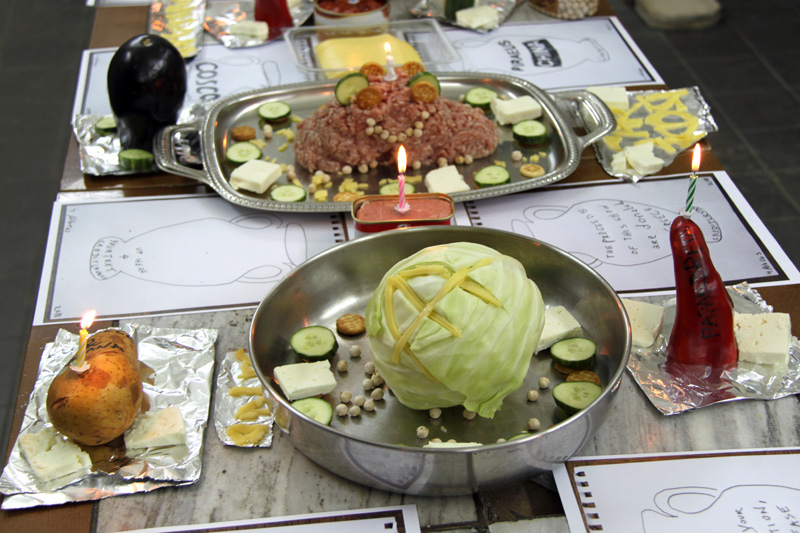
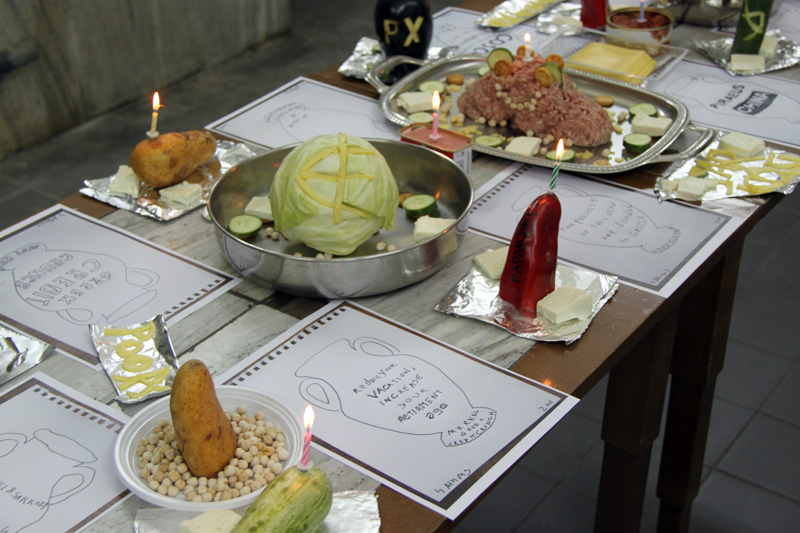
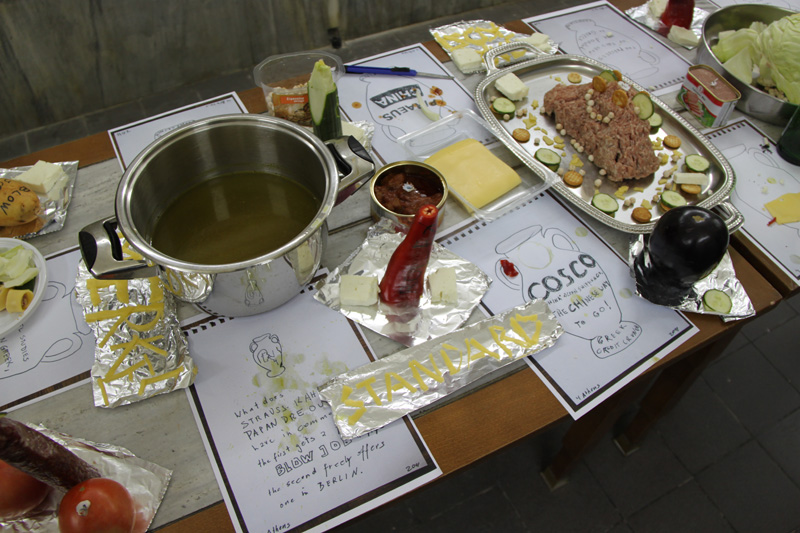
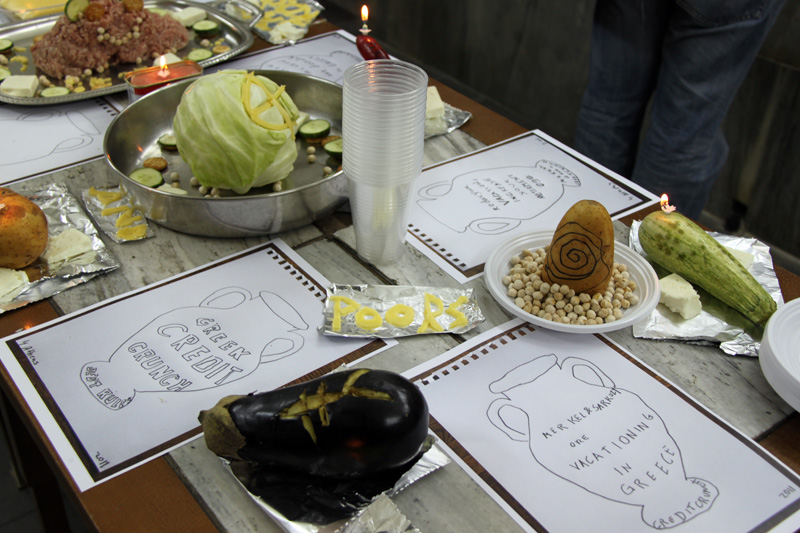
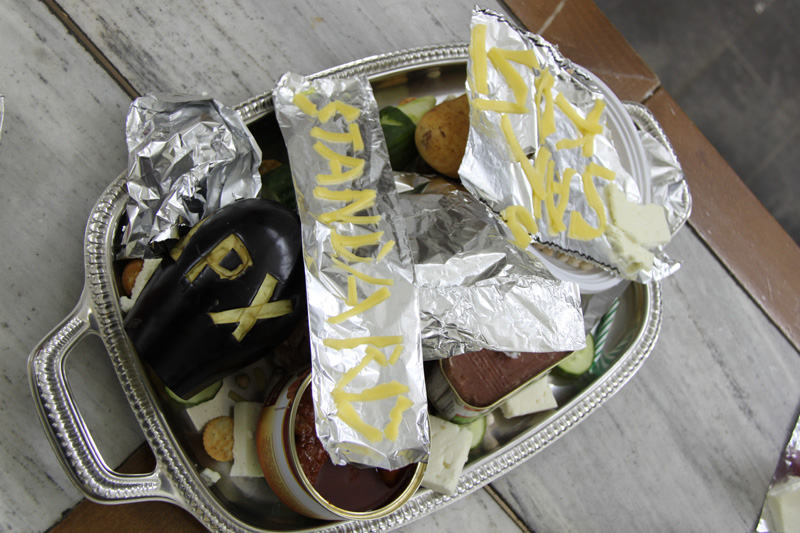

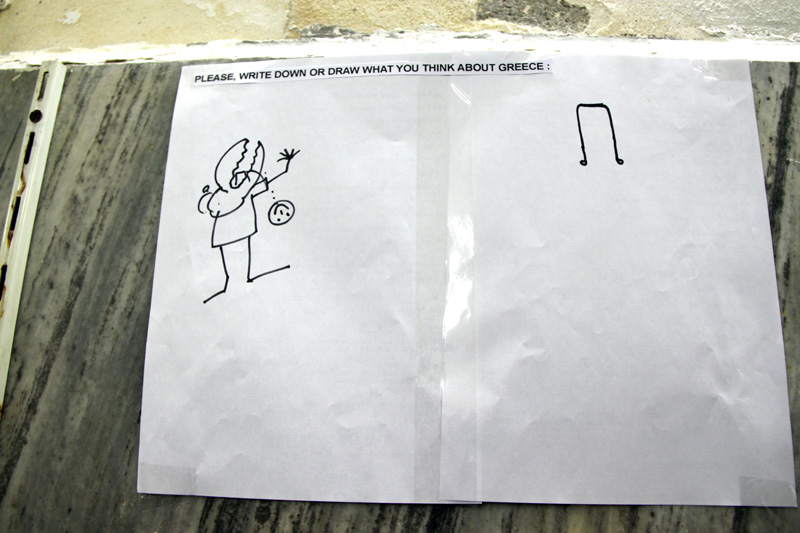
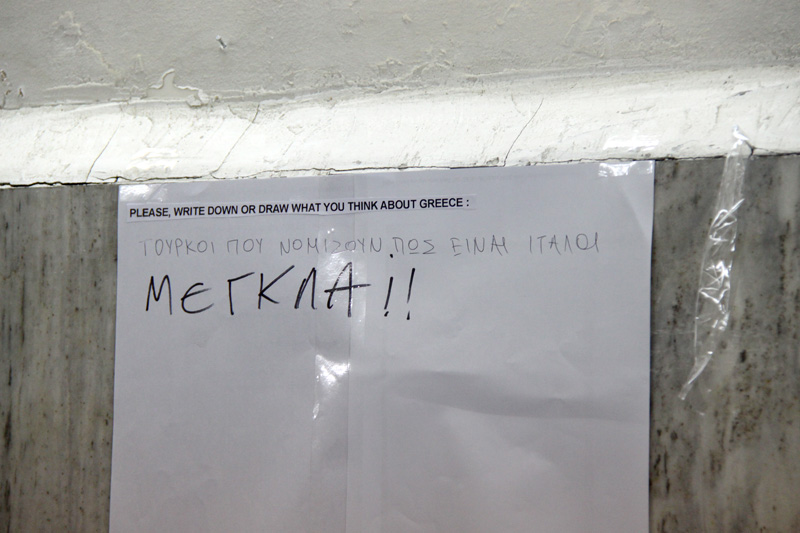
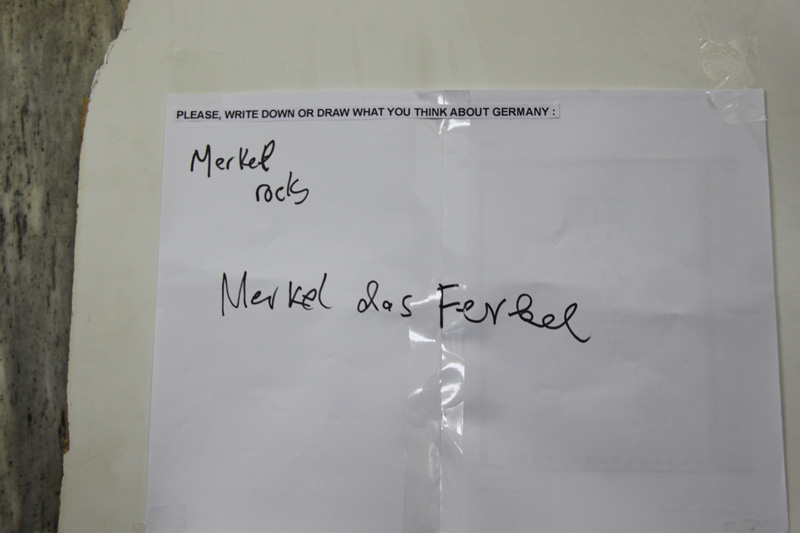
=======================for a desert just read_ =================================================================
ABOUT CHINA. GREEK RELATIONSHIP..
China has capitalized on the financial crisis to expand its influence in Europe, promising to buy Greek, Spanish and Portuguese bonds. But its most important infrastructure deal in Europe has been its investment in the Greek port of Piraeus.
See where billions of dollars in Chinese investments and contracts are going around the world.
Through such deals, Chinese influence is changing more than just the financial landscape in Greece — with ramifications for the rest of Europe.
Standing at the container terminal of the port of Piraeus, John Makrydimitris points toward his feet. "There is Greece," he says. Then he gestures toward a metal fence just yards away. "And there is China," he says with a laugh.
For dockwokers like Makrydimitris, the other side of that fence certainly seems like another country.
Piraeus is Greece's largest port, just six miles from Athens. Last June, the Chinese shipping company China Ocean Shipping Co., or Cosco, took full control of its container terminals, leasing it for 35 years for almost $5 billion. Experts believe it's probably China's largest investment in Europe to date.
For dockworkers like Makrydimitris, the other side of that fence certainly seems like another country.
Piraeus is Greece's largest port, just six miles from Athens. Last June, the Chinese shipping company China Ocean Shipping Co., or Cosco, took full control of its container terminals, leasing it for 35 years for almost $5 billion. Experts believe it's probably China's largest investment in Europe to date.
For China, the pier is a strategic gateway to bring Chinese goods into Europe and beyond.
"It's very important for the Chinese to enter through Piraeus to the eastern European and Black Sea markets, which are really booming right now," says Makrydimitris, as he gestures once more over the Chinese boundary line.
Straddle carriers — 40-foot-tall mobile cranes that look a bit like sci-fi mechanical spiders — line up to transport the enormous container boxes, which workers lash in place with iron rods.
For these workers, labor conditions on the Chinese side of the line are very different from those on the Greek side.
EnlargeNikolas Leontopoulos
Employees of China's state-run Cosco company work at the port in Greece on Sept. 13, 2010. The company is accused by Greek unionists and by employees of importing Chinese labor practices.
Labor Conditions On The Docks
Cosco doesn't allow unions or collective bargaining among its 500-plus Greek workers. The unions report that Cosco workers are largely unskilled and working on a temporary basis, with no benefits. Despite persistent rumors about their labor conditions, until now no Cosco workers have spoken out to the media.
But a former Cosco worker, who had just been sacked, spoke to NPR about work conditions on the Chinese-run pier, on the condition that his name not be used. The worker says he regularly worked eight hours a day with no meal breaks and no toilet breaks.
"I think their actions are breaking the law," the worker said. "The rights are to have something to eat around 12 o'clock [and] to have our breaks, and not work like a dog straight [through] from morning till afternoon."
He says workers were told by supervisors to urinate into the sea, rather than taking toilet breaks. Those operating straddle carriers had to take cups up into their cabins to urinate into, and he says they were not given breaks, either, despite the clear dangers of operating at such a height for so long.
The worker says he was paid 600 euros a month — about 50 euros each shift — around half the salary at the neighboring Greek-operated pier, with no extra money for working night shifts or weekends. There was no set schedule; he was kept on 24-hour call for nine months.
His wife says the experience changed his personality. "In the end, it was like a nervous breakdown," she says, gazing at him with concern. "All day he was just waiting to see whether they would call. He didn't know if he had time to eat or to sleep. Sometimes they would ring in the night to tell him to go to work. It was like torture."
....
But Cosco's critics see things very differently.
"We spoke in Parliament about our fears that labor rights would worsen," says Piraeus representative Theodore Dritsas of the left-wing Syriza party. "But what has happened is beyond our imagination." He's been following the labor issues closely after complaints from within his constituency.
EnlargeLouisa Lim/NPR
Greek Minister of State Haris Pamboukis has called the Cosco deal "a model." He denies knowledge of any labor violations and says "the only kind of law applicable is Greek law."
"The main problem is that Greece is no longer a sovereign state in economic terms," he says.
Greek politicians are facing a race against time to solve the country's debt crisis. In its most recent plan, Greece has put $70 billion of its assets up for sale, including its entire holdings in the ports of Piraeus and Thessaloniki, another port in which Chinese companies had expressed an interest in the past. This could offer another opportunity for Cosco to consolidate its investment in Piraeus, at a cut price that could be as low as $500 million.
Before this announcement was made, Minister of State Haris Pamboukis told NPR that the Greek cooperation with Cosco was a "model" to be followed. He denied all knowledge of any labor violations, shrugging this off as "rumors" by competitors.
"The only kind of law applicable is Greek law, and we're not going to import any kind of practices — Chinese, Martian or elsewhere — who are not conforming to our legislation," he says. "We are in a country for rule of law, and that's it."
"Piraeus is not a colony," Pamboukis says confidently. But these words may be too late. According to the Cosco worker's account — and the Greek government's own investigations — Cosco has already violated labor regulations in its shipping concession.
The way China undercuts competitors has been called the "China price," and with Cosco's arrival, the China price has now hit Europe's docks, threatening no less than Europe's rule of law.
http://www.npr.org/2011/06/08/137035251/in-greek-port-storm-brews-over-chinese-run-labor